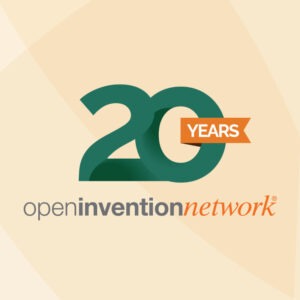The EFF said that the case involves documents so heavily redacted that no one but the parties involved can understand the case.
At 10 am Monday, FOSS folks and others interested in software patent litigation will have a chance to have a firsthand look at how our courts address patent cases. The case involves a “notorious patent troll,” according to Electronic Frontiers Foundation, that is trying to hide information from Apple, which it’s suing.
“At a federal appeals court hearing that will be livestreamed, attorney Alexandra H. Moss, Executive Director at Public Interest Patent Law Institute, who is assisting EFF in the case, will argue that a judge’s order to unseal all documents and preserve public access in the case of Uniloc USA, Inc. v. Apple Inc. should be upheld,” EFF said in a statement on Thursday. “Uniloc is entitled to resolve its patent dispute in publicly-funded courts, Moss will argue, but it’s not entitled to do so secretly.”
EFF said that this is the second time the plaintiff, Uniloc, has appealed an order to be more transparent in this case.
“As one of the world’s most active patent trolls, Uniloc files upwards of 170 lawsuits a year to make money on the vague and frivolous patents it holds,” EFF said.
A patent troll, otherwise known as a non-practicing entity, is an organization that collects patents it doesn’t actually use for the purpose of litigation. Typically, these are low quality patents, meaning that in many cases the patents should never have been issued, and the NPE is betting that the defendant will find it easier and cheaper to payoff the plaintiff rather than get involved in a long legal tussle. Increasingly, however, organizations sued by an NPE are choosing to duke it out in court.
There has traditionally been particular interest in software patents in the open source and free software communities, where many think software shouldn’t be patentable, partly because it’s already covered under copyright law.
In this case, which revolves around five unrelated patent infringement cases that Uniloc brought against Apple, EFF said it intervened to file friend of the court briefs after discovering that Uniloc’s motions and exhibits were heavily sealed and redacted, making them unreadable by anyone other than the parties involved in the case.
“EFF has intervened on behalf of the public’s right to an open and accessible court system, where anyone can view and scrutinize the conduct of players in legal disputes,” it said. “If the public has a right to access by default, Uniloc must prove compelling reasons for secrecy, and it has failed to do so.”
Moss’s arguments in Uniloc USA, Inc. v. Apple Inc will be available on Monday, December 6, at 10 am through a United States Court of Appeals for the Federal Cirtuit livestream on YouTube. Further information on this case is available on EFF’s website.







I just tried to watch this and realized I missed it because of bad description of time. It said 10am in Northern California, with no time zone listed. So one would assume 10am California Time.
However now that it is that time I try, and find out it was at 10ET. Which seems awfully early for California (I didnt know the court was even open yet at 7am) so not expected.